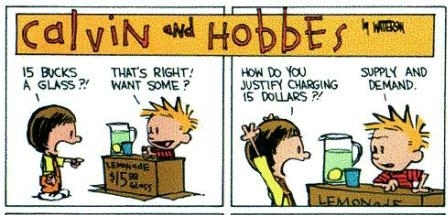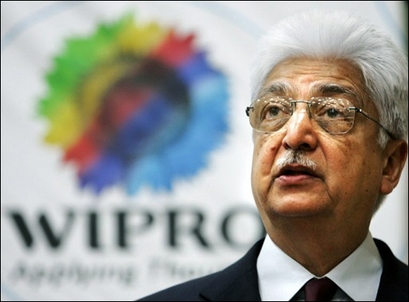The Law of Demand states that there is an inverse relationship between the price of a commodity and its quantity demanded. Demand is a function of various variables, such as price of the commodity, income of the consumer, composition of the population, tastes & preferences of the consumers and so on. However, all the factors are kept constant (ceteres paribus) in the short time span except the price of the commodity. In fact, even in the long run, the factors remain more or less constant, but price may fluctuate. Hence it is reasonable to take only price as a variable factor.

Now, we must understand as to why there is an inverse relation between the function and its variable. A logical explanation can be that if a thing is cheap, we will naturally buy more of it. But such kind of explanations do not satisfy economists.
Why is it that we tend to buy more of things that are cheap? To explain this, i must first introduce the concept of Utility. Utility, as the word goes, means the amount of satisfaction we derive when we consume a unit of a commodity. You may say that satisfaction is a very subjective term. And yes it is. That is why we have two approaches: (1) Marshallian Approach of Cardinal Utility (which states that utility can be calculated mathematically for the sake of convenience); and (2) Hicks and Alan Approach of Ordinal Utility (which states that we can merely rank the satisfaction levels of different commodities as satisfaction is a very subjective thing, i.e., for eg, i prefer an egg over bacon strip because i feel that the egg can give me more satisfaction)
Hence the Ordinal Approach is more practical for assumption purposes.
Now, we know that commodities have an inherent trait of fulfilling our desires, and these desires are fulfilled when they are satisfied. Hence, the commodity provided us with a certain utility.
Money is a representative of the value of commodities. It is means of exchange. Since money represents our tendency to buy a commodity which would in future give us satisfaction, money, hence also represents satisfaction...that is money also has a certain amount of subjective utility. And this is precisely the reason for an inverse relation between price of a commodity and its quantity demanded. If we feel that the money we hold in hand can give us more satisfaction if we buy something else, rather than the good currently at hand, we say that the commodity is over-priced and hence consume less, or no quantity, of that commodity. And if we feel that the utility we derive from the consumption of the good at hand is more than what we have forgone in terms of money, we buy more of the commodity, as it is then under-priced. Hence the inverse relationship between price and the quantity demanded.

Although Price is the variable here, when we construct the graph, it is represented on the Y-Axis and the Quantity Demanded on the X-Axis. It is a convention that we follow in Economics. But for other Function Graphs, the mathematical conventions hold true,i.e., variable on the X and function output on Y.
-Srijan Butola

Now, we must understand as to why there is an inverse relation between the function and its variable. A logical explanation can be that if a thing is cheap, we will naturally buy more of it. But such kind of explanations do not satisfy economists.
Why is it that we tend to buy more of things that are cheap? To explain this, i must first introduce the concept of Utility. Utility, as the word goes, means the amount of satisfaction we derive when we consume a unit of a commodity. You may say that satisfaction is a very subjective term. And yes it is. That is why we have two approaches: (1) Marshallian Approach of Cardinal Utility (which states that utility can be calculated mathematically for the sake of convenience); and (2) Hicks and Alan Approach of Ordinal Utility (which states that we can merely rank the satisfaction levels of different commodities as satisfaction is a very subjective thing, i.e., for eg, i prefer an egg over bacon strip because i feel that the egg can give me more satisfaction)
Hence the Ordinal Approach is more practical for assumption purposes.
Now, we know that commodities have an inherent trait of fulfilling our desires, and these desires are fulfilled when they are satisfied. Hence, the commodity provided us with a certain utility.
Money is a representative of the value of commodities. It is means of exchange. Since money represents our tendency to buy a commodity which would in future give us satisfaction, money, hence also represents satisfaction...that is money also has a certain amount of subjective utility. And this is precisely the reason for an inverse relation between price of a commodity and its quantity demanded. If we feel that the money we hold in hand can give us more satisfaction if we buy something else, rather than the good currently at hand, we say that the commodity is over-priced and hence consume less, or no quantity, of that commodity. And if we feel that the utility we derive from the consumption of the good at hand is more than what we have forgone in terms of money, we buy more of the commodity, as it is then under-priced. Hence the inverse relationship between price and the quantity demanded.

Although Price is the variable here, when we construct the graph, it is represented on the Y-Axis and the Quantity Demanded on the X-Axis. It is a convention that we follow in Economics. But for other Function Graphs, the mathematical conventions hold true,i.e., variable on the X and function output on Y.
-Srijan Butola
The following article is written by a guest editor for doodle. Srijan is a first year student of Delhi University studying Economics Honours from Kirori Mal College.










